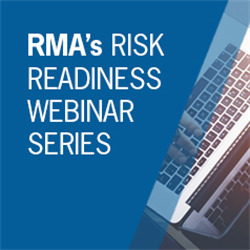Reinventing the Loan Default Management Process & Problem Loan Series Bundle On Demand
List Price
$799
Member Price
$549
Product code:
641540
Reinventing the Loan Default Management Process & Problem Loan Series Bundle On Demand

Members qualify for savings.
Log in to see if you qualify for a lower rate, or become a member to save as much as $250 or more.
Item Details
Reinventing the Loan Default Management Process:
These are critical times, with borrowers, banking customers, and lending institutions being pushed to the limit. What’s important to realize is that:
a) This situation is not going to go away in the near to mid-term, and
b) It is important to retool commercial lending teams to handle this crisis and problem loans effectively. Until a vaccine for Covid-19 is developed and months pass to manufacture enough to cover a critical mass of the population, we are likely looking at one to two years to eliminate the outbreaks and one to two year economic recovery after that.
What worked before, including during prior crises, is not likely to work in this situation. We need to retire for a while our old playbooks and adapt to this unique situation quickly. The waive of deferrals and the PPP funding only postponed and masked our true assessment of the economic damages to our borrowers, our credit facilities, and our organizations.
One of the first steps in adapting to the new environment is changing our underwriting / portfolio management process, as it will face a mass wave of troubled credits. How do you manage them efficiently and effectively, maximizing recovery of viable borrowers and minimizing loan losses? The seminar will cover:
- Understanding the key five stages of a crisis like this one, from the initial Phase 1 - Crisis Shock of the first 2-4 weeks of business disruption to Phase 5 of looking past the 12-month mark
- First level of assessment of the most critical drivers to borrowers’ survival, ranging from cash flow shortfall assessment to liquidity and equity reserves and implications to credit viability
- Mapping an immediate to interim portfolio management process
- Looking at possible portfolio decisions your organization can make and potential implications
- Creating a dashboard to manage the process of addressing your customers’ needs
- Developing a robust, tight, and well-organized process for handling your borrowers’ credit requests
- Addressing vital and targeted communication with your borrowers and within your team members
- Retooling your staff’s skills to properly manage the next several months, understanding that traditional underwriting approaches will not be as relevant, if at all.
The survival of commercial lending organizations in this environment will depend on their ability to map the new process and other critical areas as well as to implement them quickly and effectively. This must happen in the next one to two months.
You will have an opportunity to participate in the Q&A and provide input into additional resources you may need.
RMA has developed a Problem Loan Seminar Series in convenient, web-based learning formats to help you identify which loans in your portfolio might be troublesome and how to prioritize growing issues during this challenging time.
RMA's Problem Loan Seminar Series features Problem Loan Indicators and Problem Loan Resolution.
Problem Loan Indicators is designed to enhance the participants ability to identify and evaluate potential problem loans in the current environment. It opens with the uneven impact of economic change on various industries and the governments influence, pro and con, thereon. The major focus is on commercial borrowers and the warning signs that suggest budding problems.
Problem Loan Resolution is designed to provide participants with a template to: identify the options available to deal with a problem loan; and to identify the steps to take to evaluate the borrower and the selection of the best option. The focus is on developing a successful workout when supported by the appropriate factors, since workouts tend to yield the least adverse outcome for both parties.
The instructor for this seminar series is Joseph W. May, a former executive vice president and chief administrative officer of Whitney National Bank. Prior to joining Whitney, May was executive vice president and chief credit policy officer with Comerica Incorporated. He held that same position with Manufacturer National Corp. prior to its merger with Comerica. May has served in various capacities during his association with RMA which began in 1971, and was president of RMA in 1993–1994. He received his B.S. and M.B.A. degrees from the University of Rhode Island and graduated from the NACM Graduate School of Credit and Finance, Stanford University. Joe has been an RMA instructor and course designer for over 30 years. In addition, he has been a SCORE counselor and local chapter officer for 15 years.